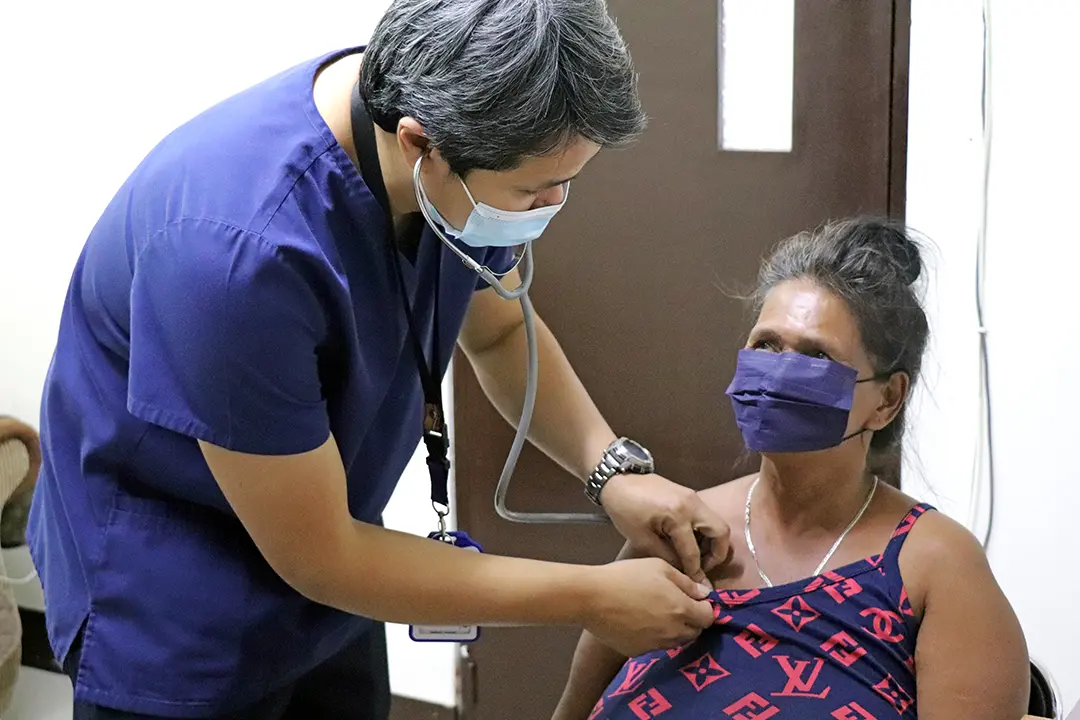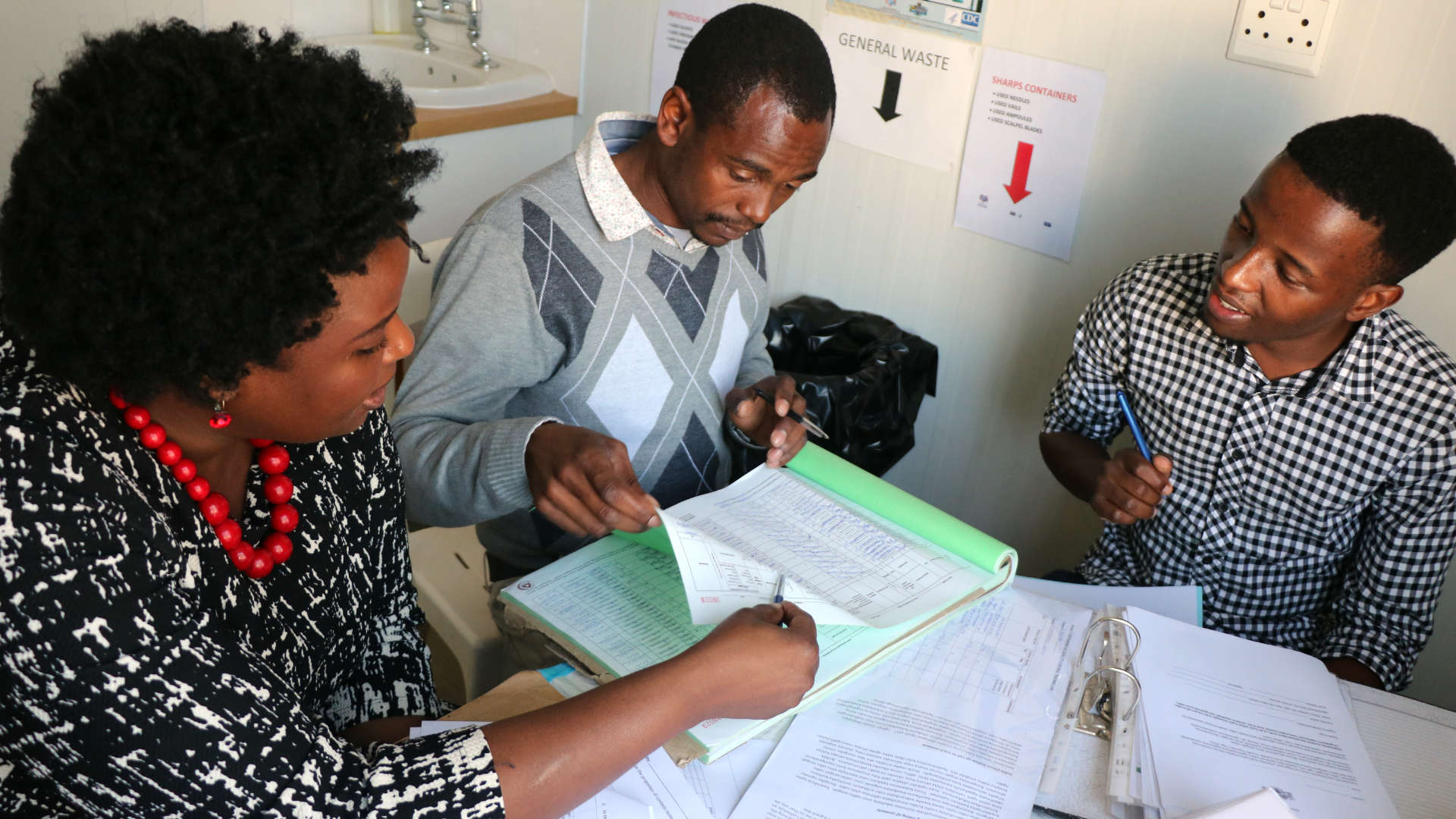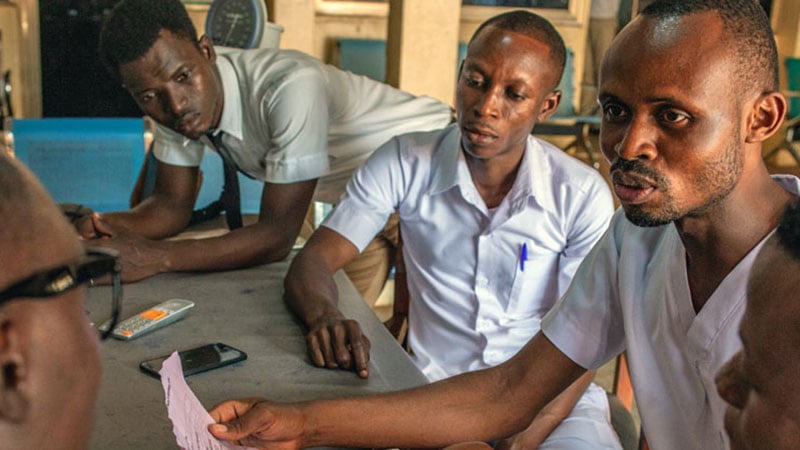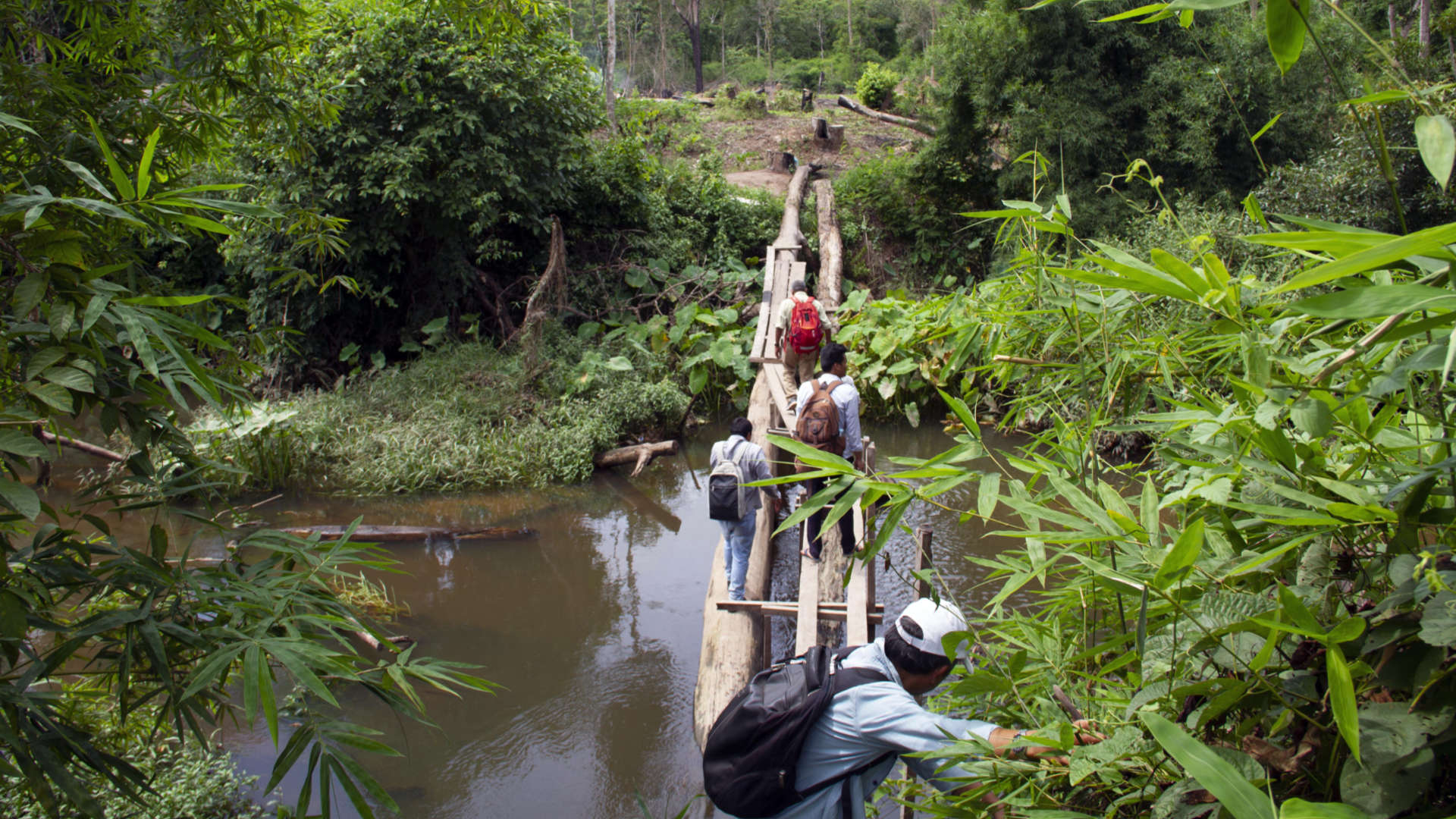Health workers play a vital role in keeping communities healthy and safe. World Health Worker Week –organized from April 1-7 by the Frontline Health Workers Coalition and the World Health Organization – is a time to express support and gratitude.
Read about several of URC’s frontline health worker heroes in Uganda, the Philippines, Mali, Ghana, Eswatini, and Cambodia. These people – working with projects URC implements around the world – often are the first and main contacts for patients.
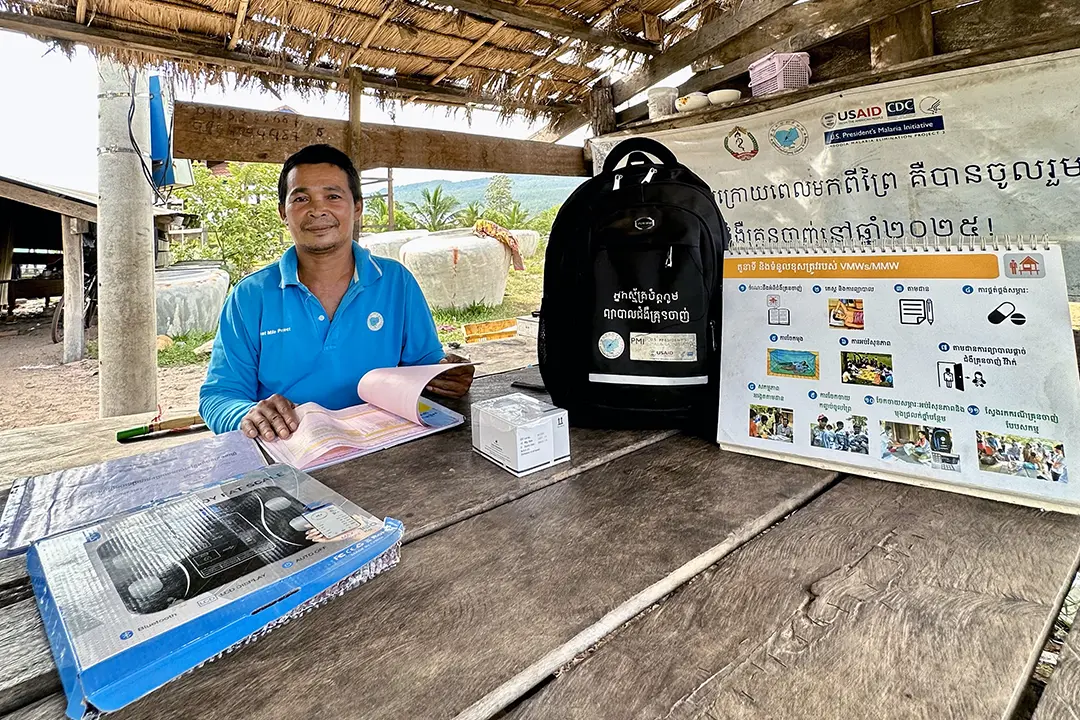
Moeun Thol
Mobile malaria worker, Veal Vong Village, Phnom Kravanh District, Pursat Province, Cambodia Malaria Elimination Project 2 (CMEP2)
Meun Thol, a mobile malaria worker in Veal Vong Village, Rokata Commune, has contributed to increasing community awareness about malaria transmission in his work with CMEP2. He uses a community dialogue approach to promote behavior change, use of long-lasting insecticidal nets, effective personal protection, and use of malaria testing and treatment among forest goers and or villagers – especially in hard-to-reach areas. Both village malaria workers and mobile malaria workers are an essential element of Cambodia’s national strategy to eliminate malaria by 2025.
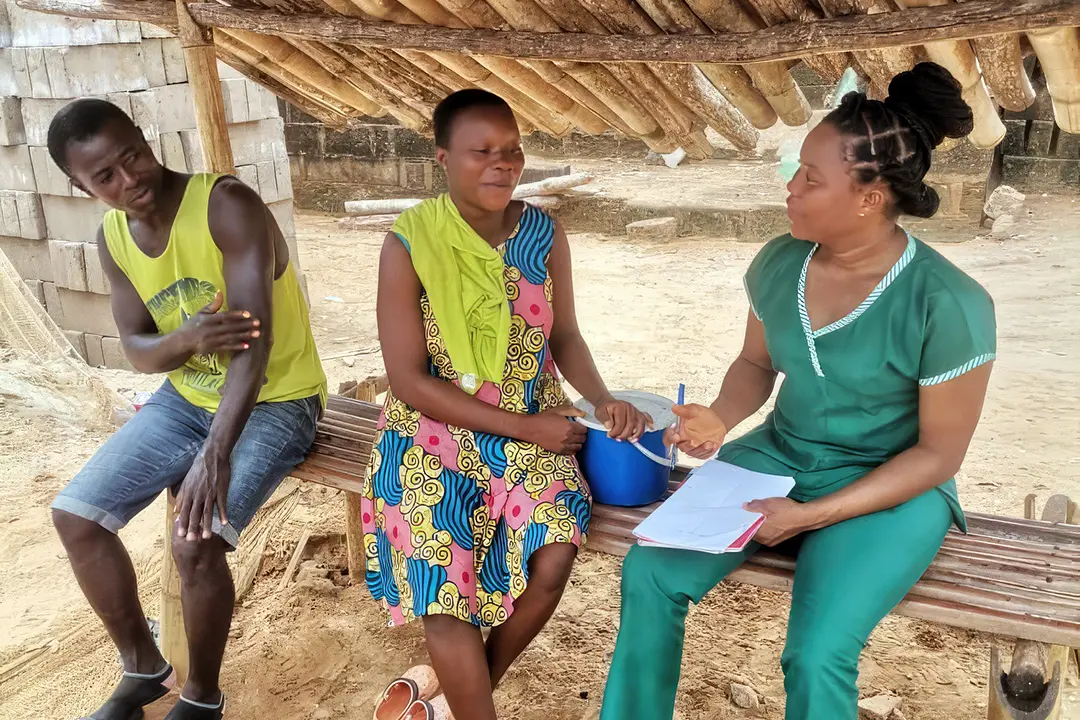
Elizabeth Akalezi
Midwife, Princess Town Health Centre, USAID Quality Services for Health Activity
Elizabeth Akalezi is a midwife at Princess Town Health Centre, a remote farming community in Ghana. She and her quality improvement team – supported by the URC-led USAID Quality Services for Health Activity – were alarmed at the decline of skilled baby deliveries, dropping 12% over a 2-year period.
After careful investigation, they determined that limited antenatal care access, transportation issues, and reliance on traditional birth attendants (TBAs) were factors. By conducting home visits, improving diagnostics, following with women who did not complete antenatal care, partnering with TBAs, and establishing community ambulance services, Elizabeth and the team doubled the rate of skilled deliveries to 58%.
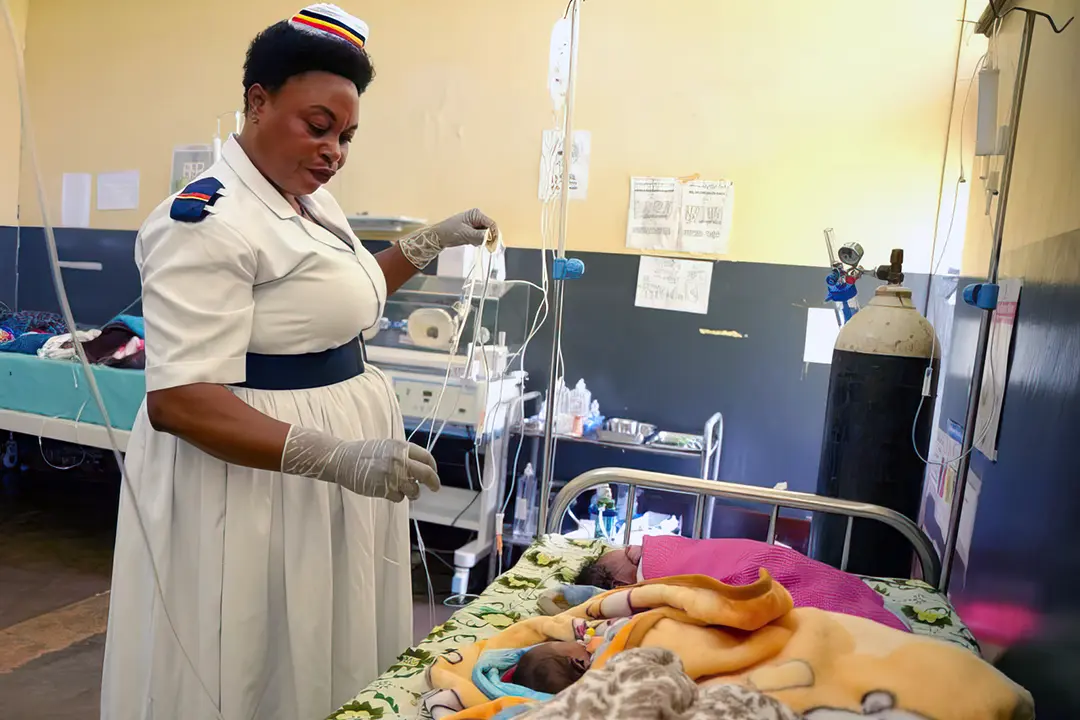
Sister Muzaki Annamary
Neonatal Intensive Care Unit Nursing Officer, Bugisu Sub-region, USAID Uganda Health Activity (UHA)
Each year, approximately one in 10 babies in Uganda are born prematurely – before 37 weeks. These babies are susceptible to health problems and may need to stay in the hospital longer than full-term babies. Kapchorwa Hospital is the only facility with a Neonatal Intensive Care unit (NICU) serving the Sebei region in eastern Uganda, attending to more than 10 premature babies in a month with only one machine to provide supplemental oxygen to babies. The unit also lacks baby warmers that help to maintain body temperature.
To overcome these challenges, Sister Muzaki Annamary, a NICU Nursing Officer, together with her team, created the “octopus” – an empty plastic IV bottle, connected to the oxygen concentrator at its mouth, and pierced with IV tubes dangling like the arms of an octopus. This allows oxygen to be provided to several babies at once. To keep babies warm, Muzaki fills surgical gloves with hot water, tying them up safely in blankets to cover the babies. Her innovations not only save lives at Kapchorwa Hospital, but train other health workers to make their NICUs more functional.
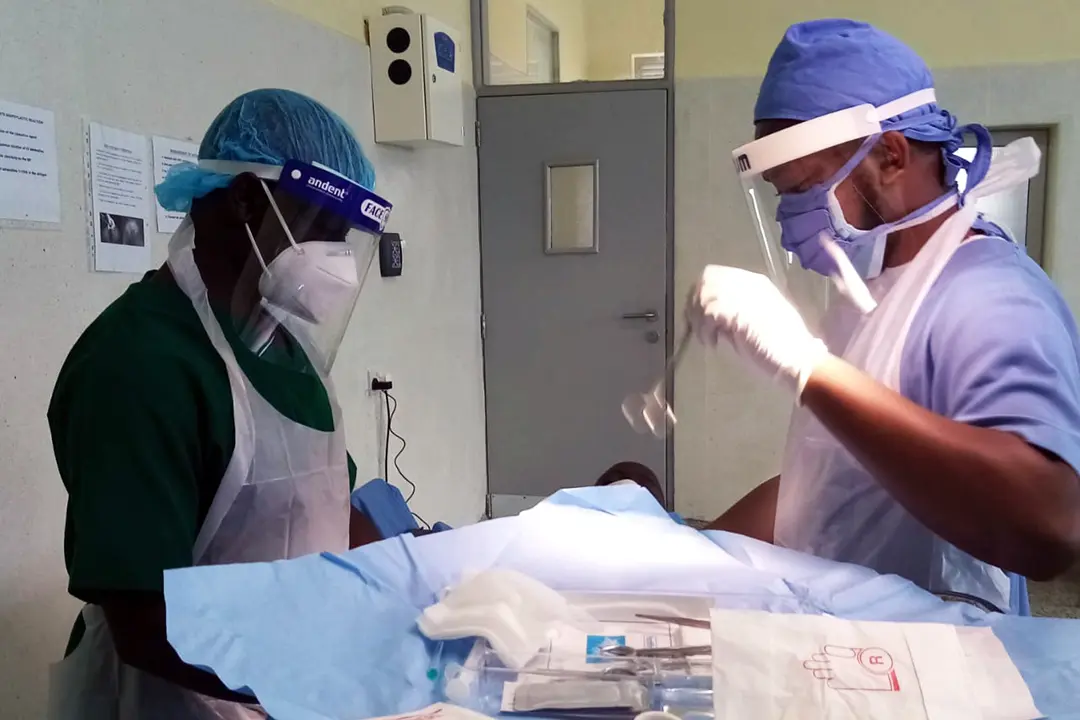
Isaac Muhumuza
Medical Clinical Officer, Nakasongola Military Hospital, Department of Defense HIV/AIDS Prevention Program Uganda (DOD Uganda URC Project)
Isaac Nakasongola (right side of the photo) exemplifies dedication and compassion in healthcare. Despite challenges such as limited resources, he consistently delivers high-quality care to his patients. His leadership is evident in organizing voluntary male medical circumcision (VMMC) medical camps and training fellow healthcare workers on VMMC. Nakasongola’s empathy for diverse patients builds trust and improves healthcare outcomes. He advocates for marginalized communities, striving to reduce healthcare disparities and improve access to essential services. Beyond clinical duties, he engages in community health education initiatives, empowering individuals to prioritize their well-being.

Mariam Traoré
Community Health Worker, Ouéléni Fièbala Village, Mali, USAID Household and Community Health Activity (Keneya Nieta)
Mariam Traoré embodies the role of a trusted community health worker, showing an unwavering commitment to serving Ouéléni Fièbala village since 2014. Her dedication is evident on the front lines, tirelessly providing a range of basic health services, including promotion, prevention, screening, treatment, and health education. She also exemplifies the qualities of an exemplary woman leader. She fosters trust within the community and serves as a role model for empowerment, inspiring other women to take charge of their health and well-being. In Ouéléni Fièbala, Trarore responds to the needs of her community by treating children and is credited for recruiting over 100 women for family planning services. Through the Keneya Nieta Activity, she collaborates with the community health platform, continuously reinforcing their skills to meet various health challenges.
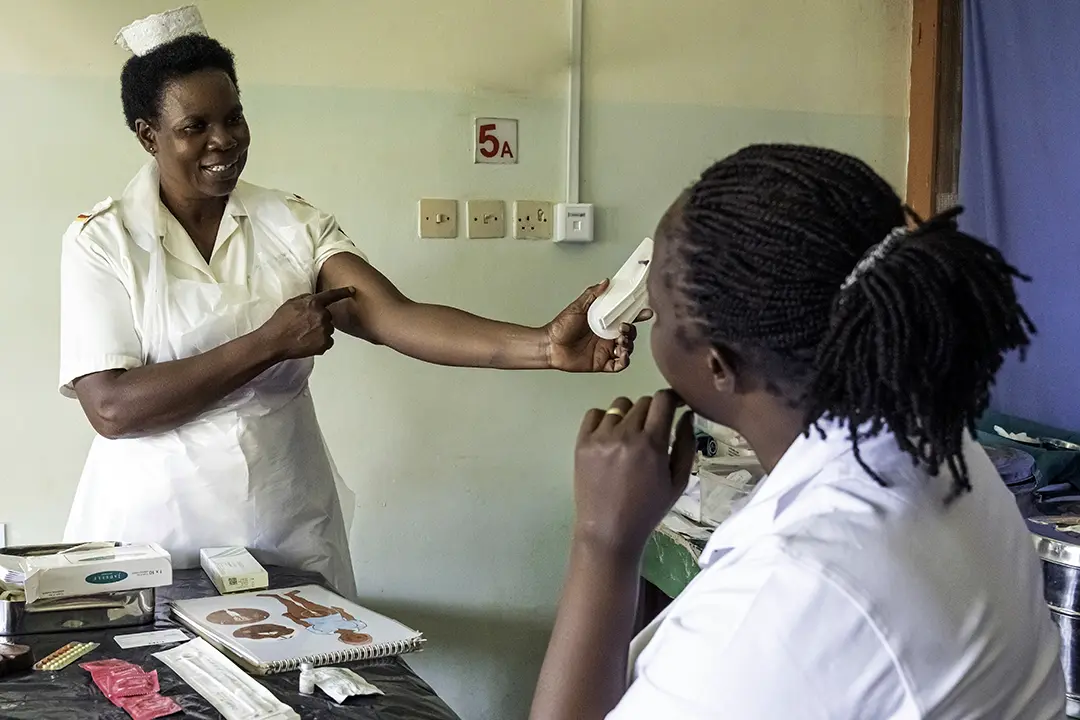
Sister Irene Mondo
Enrolled Midwife, Busoga sub-region, USAID Uganda Health Activity (UHA)
Sister Irene Mondo, a courageous midwife at Jinja Regional Referral Hospital in East Central Uganda, is leading a cultural revolution towards acceptance of family planning in the Busoga sub-region. Her determination, coupled with family planning counseling training from the URC-led USAID Uganda Health Activity is challenging the cultural gender beliefs that have contributed to the region’s high fertility rate.
Sister Mondo’s goal is for every couple to leave the hospital’s antenatal ward with a jointly planned future. Her counseling male partners on the benefits of family planning has contributed to a reduction in domestic violence. Her counseling work has contributed to reducing instances of domestic violence. Through her relentless efforts, Sister Irene Mondo is not just promoting family planning; she is empowering women and girls from diverse backgrounds with choice.
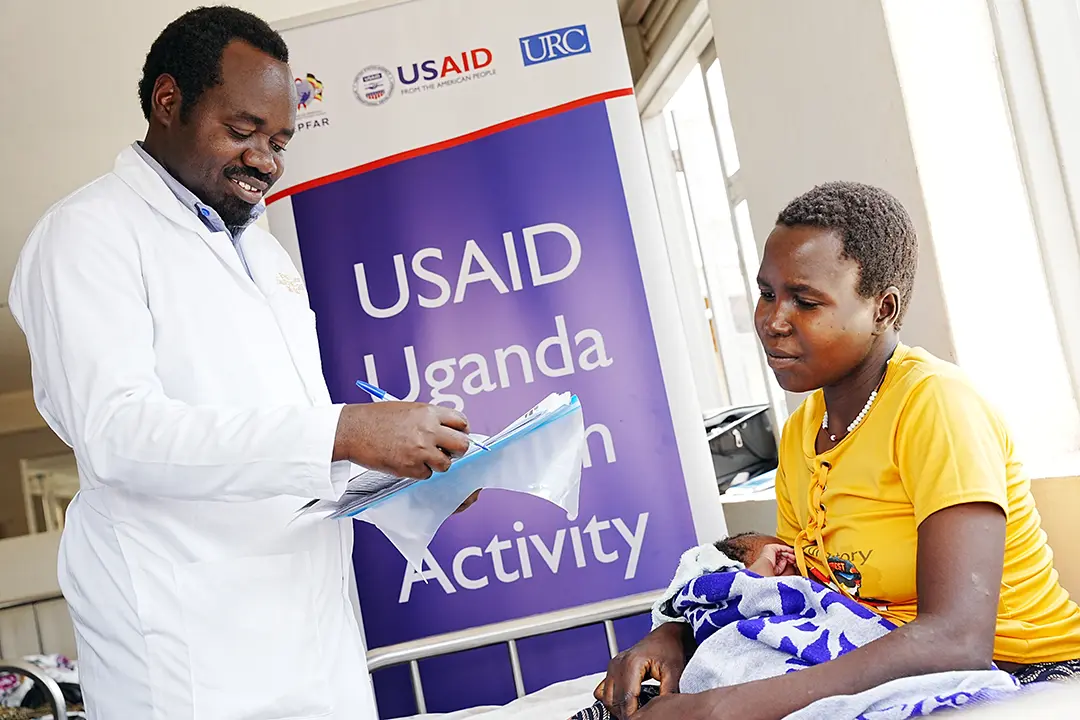
Dr. Godfrey Akena
Obstetrician/Gynecologist, Kitgum District General Hospital, USAID Uganda Health Activity (UHA)
Godfrey Akena understands the power of social media, leveraging his WhatsApp expertise to provide vital guidance during labor and delivery at lower-level healthcare facilities in Kitgum District. This remote mentoring has profound implications, particularly in parts of the Acholi region in northern Uganda with limited access to specialized care. He leads the district’s Maternal and Perinatal Death Surveillance and Response (MPDSR) platform, supporting facilities to review their deaths and produce actionable recommendations. Between October and December 2024, Akena saved four mothers from postpartum hemorrhaging, reached eight lower-level facilities, and mentored 12 health workers.
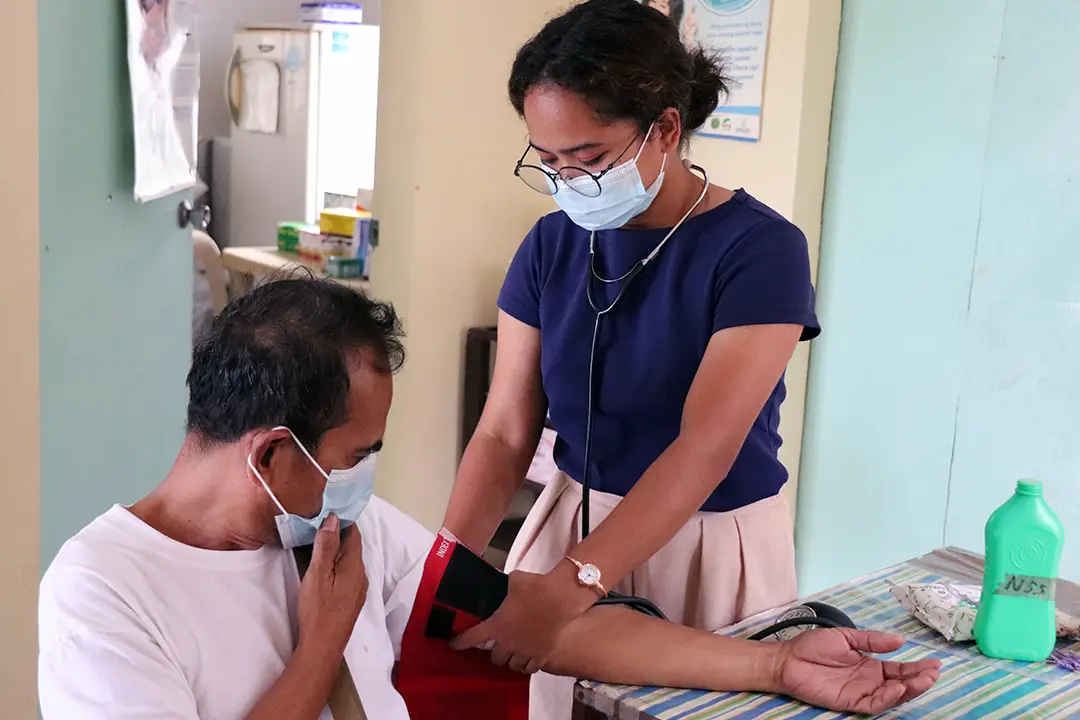
Kathleene Liggayu
Rural health midwife, Barangay Bangkal, Bataan, Philippines, USAID’s TB Platforms for Sustainable TB Detection, Care and Treatment (TB Platforms)
Kathleene Liggayu is an active health partner of USAID’s TB Platforms, delivering quality patient-centered care. Working as a rural health midwife in an isolated and disadvantaged area in Bataan, Liggayu has served the community of Barangay Bangkal for four years. She describes her work in providing care and treatment to the indigenous Aeta tribe as giving her life purpose. As a tribe member, she understands the challenges that come from being a member of an underserved population whose needs are often overlooked, making her commitment to their well-being more profound.
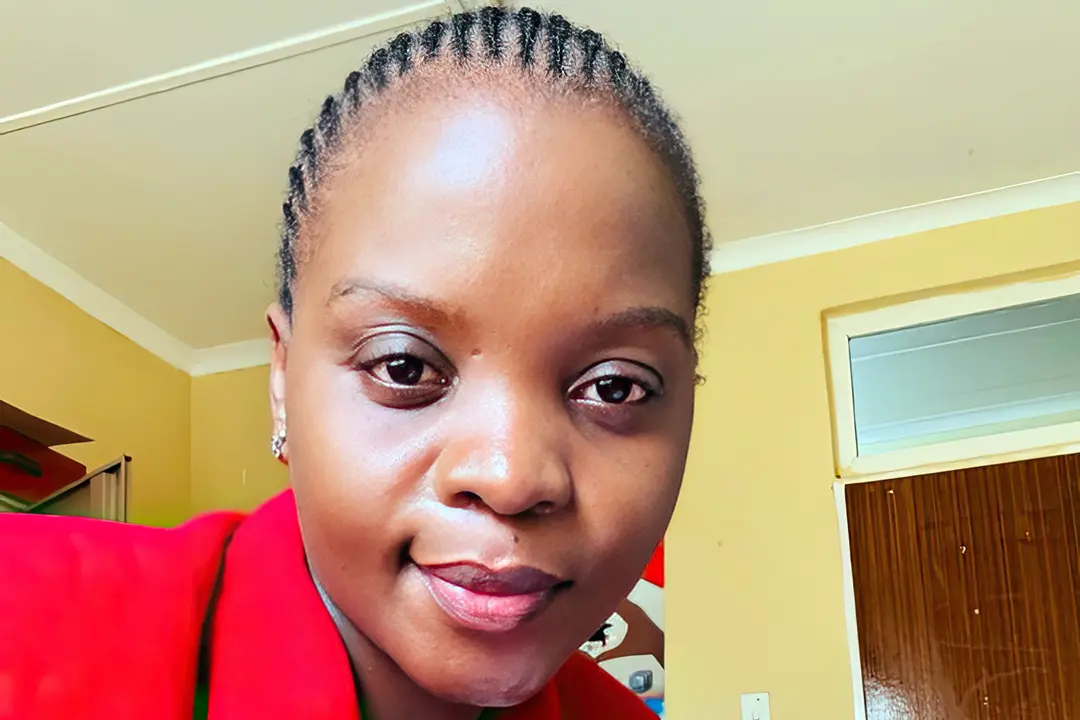
Nomcebo Dlamini
Antiretroviral Therapy Nurse, Phocweni Clinic, Department of Defense HIV/AIDS Prevention Program Eswatini (DoD Eswatini URC Project)
Nomcebo Dlamini is an antiretroviral therapy (ART) nurse based at the Phocweni Clinic, the hub facility for the Umbutfo Eswatini Defence Force (UEDF) and a referral site for the nine other military clinics located in barracks around the country. She has made a significant contribution to, helping Eswatini achieve the 95-95-95 epidemic control targets: 95% of all people with diagnosed HIV infection to receive sustained antiretroviral therapy, and 95% of all people receiving antiretroviral therapy to have viral suppression.
Dlamini meets military and general clients daily to provide customer-centric HIV, TB, cervical cancer, and non-communicable disease (NCD) integrated services in the Phocweni ART unit. She has enrolled and retained more than 3,000 clients in HIV care at the facility, tailoring services to address the client’s needs, being aware of cultural diversity and putting mental health at the center of client management.
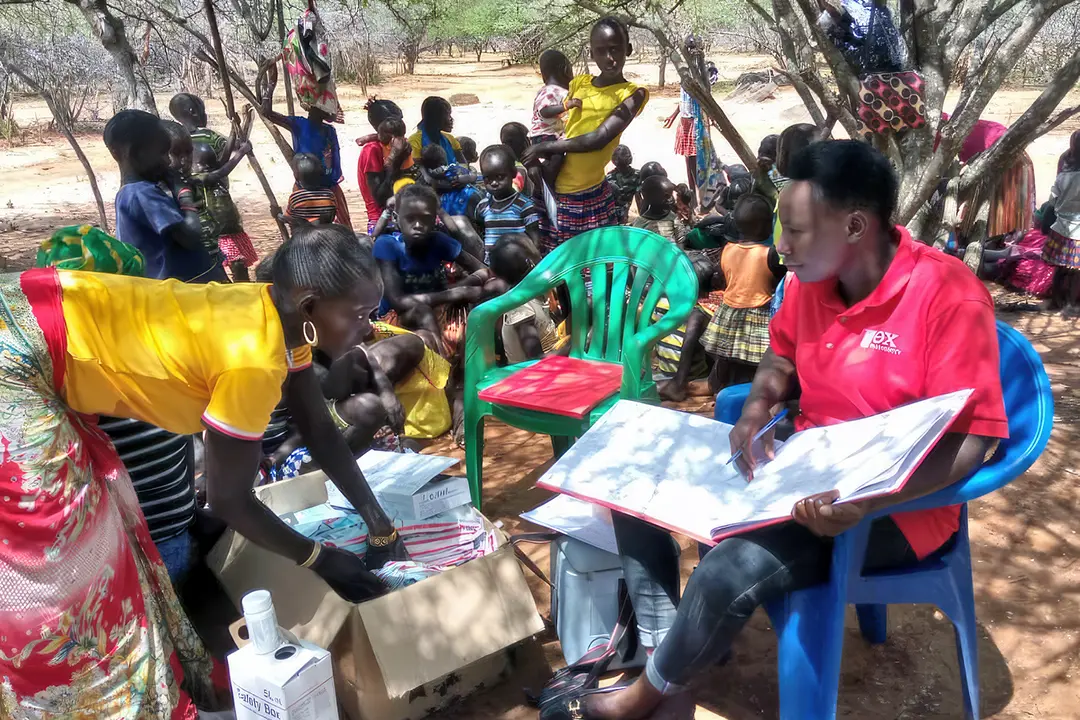
Catherine Asio
Enrolled Midwife, Alakas HC II, Amudat District, USAID Uganda Health Activity (UHA)
Catherine Asio, an enrolled midwife, uses motorcycles to transport mothers in obstructed labor to referral sites, ensuring timely access to care when ambulances are unavailable. In October 2023, she successfully transferred a distressed mother, a baby, and an attendant to the hospital, where the baby received oxygen resuscitation and the mother received essential care, leading to their successful recovery. Asio’s steadfast presence and dedication at Alakas HC II have elevated its services to the level of a HC III, motivating mothers to choose it over other facilities. Her proactive and compassionate approach significantly improves maternal and child health outcomes in the region, earning her trust and admiration within the community.
